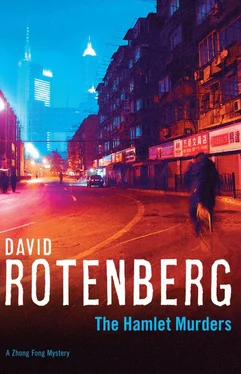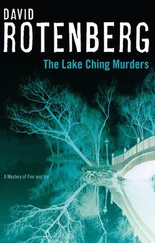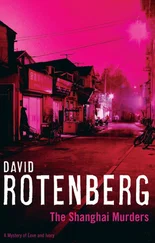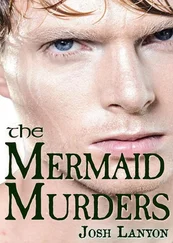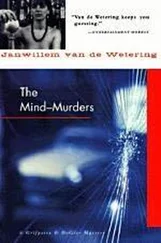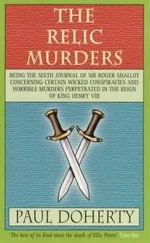David Rotenberg - The Hamlet Murders
Здесь есть возможность читать онлайн «David Rotenberg - The Hamlet Murders» весь текст электронной книги совершенно бесплатно (целиком полную версию без сокращений). В некоторых случаях можно слушать аудио, скачать через торрент в формате fb2 и присутствует краткое содержание. Год выпуска: 2011, Издательство: Schwartz Publishing Pty. Ltd, Жанр: Полицейский детектив, на английском языке. Описание произведения, (предисловие) а так же отзывы посетителей доступны на портале библиотеки ЛибКат.
- Название:The Hamlet Murders
- Автор:
- Издательство:Schwartz Publishing Pty. Ltd
- Жанр:
- Год:2011
- ISBN:нет данных
- Рейтинг книги:3 / 5. Голосов: 1
-
Избранное:Добавить в избранное
- Отзывы:
-
Ваша оценка:
- 60
- 1
- 2
- 3
- 4
- 5
The Hamlet Murders: краткое содержание, описание и аннотация
Предлагаем к чтению аннотацию, описание, краткое содержание или предисловие (зависит от того, что написал сам автор книги «The Hamlet Murders»). Если вы не нашли необходимую информацию о книге — напишите в комментариях, мы постараемся отыскать её.
The Hamlet Murders — читать онлайн бесплатно полную книгу (весь текст) целиком
Ниже представлен текст книги, разбитый по страницам. Система сохранения места последней прочитанной страницы, позволяет с удобством читать онлайн бесплатно книгу «The Hamlet Murders», без необходимости каждый раз заново искать на чём Вы остановились. Поставьте закладку, и сможете в любой момент перейти на страницу, на которой закончили чтение.
Интервал:
Закладка:
It was the beginning of my understanding that it was no longer good enough, as a teacher, to deliver hashed-over versions of the old acting dogma. That their “food money” obliged me to reassess what it was I was teaching. That too frightened me because there had been precious little, if any, serious reassessing within the acting teaching community for many, many years.
The following week, my Yonkers kids showed up on time and announced that they were ready to show me American Buffalo. I said, sure, assuming that they had put a few pages of the play on its feet. They started into the play – from the top. They did the whole play cover to cover, without a break. What they did manage to break in the course of their performance was the mirror over the mantelpiece, a lamp and a windowpane. When they were finished, they turned to me as if to say: So what do you think, Coach?
What I thought was that hunger was an important part of being a professional actor and that these young hungry actors deserved better understanding of their art than there was available in the present acting texts.
That was the beginning of the thinking that led to this book.
Three of these four aggressive young actors barged their way into the profession. The fourth – well . . . anger out of its cage – decompartmentalized, if you will – can be terribly destructive.
That was one of the few times in my life that I have taught beginner actors. I still don’t teach beginners and this book is not intended for beginner actors, although if you have enough hunger, you’ll be able to use the ideas and methods outlined in this book to make you a better actor.
Like most good ideas, the concepts in this book are easy to learn but may take quite a while to apply. It is easy enough to learn the rules of chess. It takes a lifetime to gain any mastery of the game.
Nothing of any value can be put on a 3-by-5 index card – except the thought that nothing of any value can be put on a 3-by-5 index card.
Acting teaching can be roughly broken down into those explorations that are about finding notes on an actor’s piano keyboard and those explorations that are about how to play the notes that an actor has already discovered. This book, and my work for the past 20 years, is primarily about how to play the notes you have found. How to understand what the notes you have mean, which notes are not good any longer, which have never been good, which notes can replace bad notes, which notes are available to you but you don’t know it – and most important - how to finger your stops and depress your frets so that you can play the notes you have together in a fashion that as Hamlet says “will discourse most eloquent music.” (Hamlet, Act 3, Sc. 2)
The actor’s territory is the human heart. It is an uncharted land defended by terrifying dragons but it also contains great glories, music and deep human truths. To the hungry actor it is the only land worthy of investigating.
This book attempts to give the actor a compass and survival kit for that strange land. It includes sketch maps and points of reference in that divine territory – whose exploration can for the artist, and should, last a lifetime.
Fong put down the pages. Who writes an introductory chapter to a book based on the knowledge gained in a lifetime of work and then commits suicide?
The next page was blank. The page after that was not. This page was filled with Geoff’s red felt-pen scratchings. The top part of the page seemed to be an effort to write a section on “being present,” a term that Fu Tsong had often used. But that ended quickly and was replaced with a set of large angry words: How, with her gone? How? How the fuck without her!
Fong felt sick. He had no doubt who the “her” was that Geoff referred to. It was his dead wife and Geoff’s dead lover – Fu Tsong.
CHAPTER SIX
Geoff’s death was duly noted by some of the Canadian press, but because he had done much of his work in the United States the notices were small, buried and perfunctory. Had he been either a member of one of the Old Anglo families who still ran the theatre world in Canada or had he spent six weeks in Czechoslovakia, rather than sixteen years in America, his death would have been worthy of several column inches in the entertainment sections and would no doubt have been followed by engaging eulogies delivered by middleaged ponytailed men.
One theatre that had contracted Geoff to direct in the upcoming season actually breathed a sigh of relief at his passing. The artistic director had promised his business manager a show to direct but had overlooked this obligation after the acting company raised a considerable fuss. But Geoff’s death provided the answer gift-wrapped – Geoff was gone, we had tried to get him to direct but he was gone and at this late date who could we possibly get – hey, the business manager is available – aren’t we all one big happy family again!
There was one other place in Canada that Geoff’s passing was noted – although not publicly. It was on the West Coast of the huge country on a mountaintop university campus by a handsome man in his late thirties who went by the name Richard Lee. He dressed and moved casually, but there was a real distance in his eyes. As if something far-off were the object of his attention.
That something far-off was in fact his brother, Xi Luan Tu.
Richard sat on the wooden deck on the north side of the Simon Fraser University campus and stared at the snow-covered peaks across the way. The dazzling sunlight, a rarity for this part of the world even in summer, flooded over him. He had come to Simon Fraser University because of the significant Dalong Fada presence on the campus, which allowed him to arrange for adequate security for his meeting. And therefore he sat, at the appointed hour, in the brilliant sunshine, on this campus – almost empty of people – and read the university’s promotional brochure. Richard was not interested in the university’s self-congratulatory bibble-babble about its achievements and its goals, but he found the short blurb on the history of the school’s namesake, Simon Fraser, really quite interesting. It seemed that all Mr. Fraser managed to accomplish in his life was to be the first Caucasian to enter the land that is now called British Columbia. He accomplished this overland feat in 1808 at the behest of the North West Company of Montreal. It appears, though, that the company was looking for beaver pelts, not some of the world’s most spectacular country. He had failed in his appointed task. He was a man who discovered beauty but not rodents.
A large raven, inky blue-black, fluttered to a stop on a nearby concrete ledge and looked at Richard. The bird’s sharp beak snapped open and emitted a flat caw. Richard held the bird’s eyes. Two black pebbles in a deeper darkness. In Mandarin, Richard said, “Fly away without my soul today and I will pray to you tomorrow.”
“Not a classic Dalong Fada thought,” said a sharp voice in Mandarin from behind Richard. The raven cawed loudly again and flapped its wings but maintained its roost on the post.
Richard turned toward the source of the voice. The man standing there was in his mid-to-late twenties; the results of a fairly regular attendance in a weight room were evident on his arms, chest and neck. He held a fresh croissant in one hand. He wore expensive Italian slacks and a pure linen shirt. But his feet, exposed by his ever-so-fashionable sandals, were pure Hunan peasant.
Читать дальшеИнтервал:
Закладка:
Похожие книги на «The Hamlet Murders»
Представляем Вашему вниманию похожие книги на «The Hamlet Murders» списком для выбора. Мы отобрали схожую по названию и смыслу литературу в надежде предоставить читателям больше вариантов отыскать новые, интересные, ещё непрочитанные произведения.
Обсуждение, отзывы о книге «The Hamlet Murders» и просто собственные мнения читателей. Оставьте ваши комментарии, напишите, что Вы думаете о произведении, его смысле или главных героях. Укажите что конкретно понравилось, а что нет, и почему Вы так считаете.
